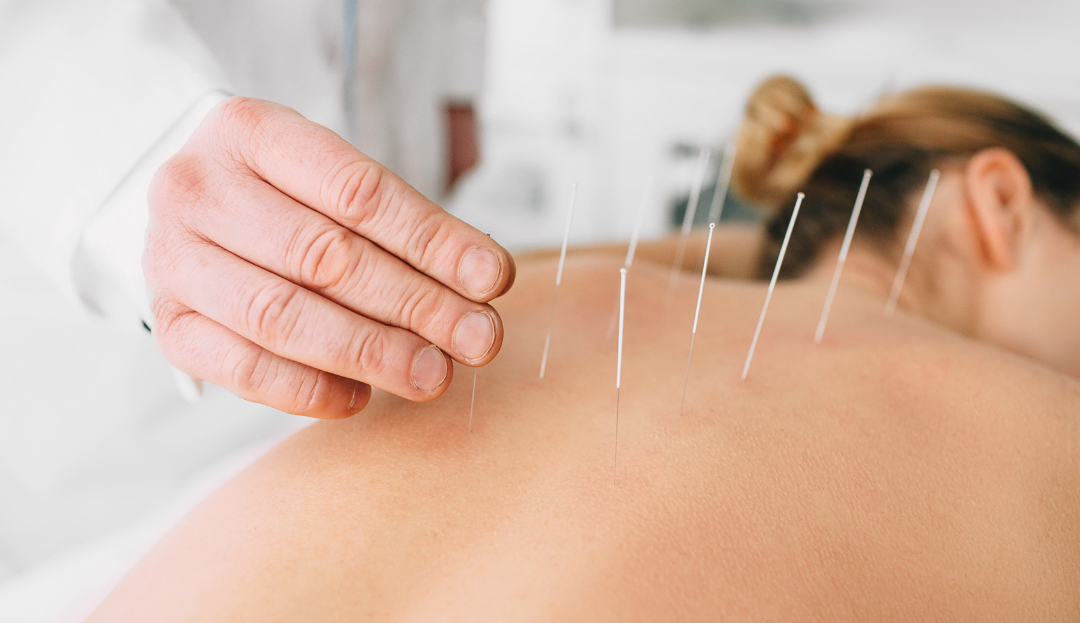Acupuncture is an ancient healing practice that’s been used for thousands of years to treat a variety of ailments, from pain relief to stress reduction. But how does this therapy work, and who can truly benefit from it? Whether you’re curious about trying acupuncture or simply want to learn more about this fascinating treatment, let’s dive into the science behind acupuncture, how it supports wellness, and who it can help.
What Is Acupuncture?
Acupuncture is a form of Traditional Chinese Medicine (TCM) that involves inserting very thin needles into specific points on the body, called acupuncture points. These points are found along pathways called meridians, which, according to TCM, carry the body’s vital energy, or “qi” (pronounced “chee”). In TCM philosophy, it’s believed that illness and pain stem from imbalances or blockages in qi. By stimulating certain points, acupuncture aims to restore the balance and flow of energy throughout the body.
In recent decades, acupuncture has gained traction in the West, not just for its historical roots but also for the scientific evidence backing its effectiveness in various treatments.
How Does Acupuncture Work? A Look at the Science
When acupuncture needles are inserted into specific points, they stimulate the body in several ways:
- Nervous System Activation: Acupuncture needles stimulate nerves, which send signals to the brain. This activation releases neurotransmitters like endorphins, which are natural pain relievers, and serotonin, which can improve mood and reduce stress.
- Improved Blood Flow: The micro-injuries created by acupuncture needles promote blood flow to specific areas, which aids in healing, reduces inflammation, and improves oxygen and nutrient delivery to tissues.
- Reduction in Inflammation: Studies suggest that acupuncture can reduce inflammatory markers in the body, which is beneficial for those suffering from conditions where inflammation is a root cause of pain, such as arthritis or chronic injuries.
- Regulation of the Nervous System: Acupuncture can affect both the sympathetic nervous system (responsible for the “fight or flight” response) and the parasympathetic nervous system (responsible for the “rest and digest” state). By promoting relaxation, acupuncture can help people manage stress and anxiety.
Through these mechanisms, acupuncture can effectively support the body’s natural healing processes, manage pain, and promote balance within multiple bodily systems.
Who Can Benefit from Acupuncture?
Acupuncture can be used as a complementary therapy for a wide range of health issues. Here are some common conditions and goals that acupuncture can support:
1. People with Chronic Pain
One of the most common reasons people seek acupuncture is for pain relief, particularly for chronic pain conditions such as:
- Back and Neck Pain: Acupuncture is often recommended for chronic back and neck pain, providing relief by stimulating endorphin release and improving blood flow.
- Arthritis: Studies show that acupuncture can reduce pain and improve joint mobility in arthritis sufferers by reducing inflammation.
- Headaches and Migraines: Acupuncture has been shown to reduce the frequency and intensity of headaches and migraines, making it a popular alternative to medication for headache relief.
Best For: Those dealing with persistent pain who are seeking a non-pharmaceutical, holistic approach to pain management.
2. Individuals Looking to Reduce Stress and Anxiety
Life can be stressful, and chronic stress takes a toll on both physical and mental health. Acupuncture helps regulate the body’s stress response by promoting the release of feel-good neurotransmitters like serotonin, dopamine, and endorphins.
Best For: Anyone dealing with stress, anxiety, or even symptoms of depression may find acupuncture to be a helpful, natural way to improve their mood and achieve a sense of calm.
3. People with Digestive Issues
Acupuncture can also support digestive health by promoting gut motility, regulating stomach acid, and reducing inflammation. It’s used as a complementary therapy for conditions like:
- Irritable Bowel Syndrome (IBS): For those with IBS, acupuncture can help relieve symptoms such as bloating, cramping, and irregular bowel movements.
- Acid Reflux: By stimulating specific points, acupuncture can help balance stomach acid levels and reduce symptoms of acid reflux or GERD.
Best For: Individuals with digestive discomfort or chronic digestive issues looking for a gentle, non-invasive approach to support their gut health.
4. Athletes and Active Individuals
Acupuncture can be beneficial for athletes seeking muscle recovery, injury prevention, and overall performance enhancement. By improving blood flow, reducing inflammation, and relaxing tight muscles, acupuncture can support athletic recovery and help prevent injuries.
Best For: Athletes, fitness enthusiasts, or anyone with a physically active lifestyle who wants to improve recovery times and optimize their physical performance.
5. Those Seeking Better Sleep
Sleep is essential for overall health, and acupuncture can be a helpful therapy for those struggling with insomnia or sleep disturbances. By calming the nervous system and promoting relaxation, acupuncture can help improve sleep quality and duration.
Best For: People dealing with insomnia, irregular sleep patterns, or high stress levels that interfere with sleep.
6. Individuals with Hormonal Imbalances
Acupuncture is also used to support hormonal balance, which can be beneficial for:
- Women’s Health: Acupuncture can relieve symptoms associated with PMS, menopause, and menstrual pain. It is also used to support fertility by improving blood flow to reproductive organs and reducing stress.
- Thyroid Disorders: Acupuncture can help stimulate the thyroid and support endocrine balance, providing relief for symptoms associated with thyroid imbalances.
Best For: Anyone dealing with hormonal issues, whether related to reproductive health, thyroid health, or general endocrine balance.
What to Expect in an Acupuncture Session
If you’re new to acupuncture, here’s what you can generally expect:
- Consultation: Your practitioner will begin with a consultation, discussing your health concerns, lifestyle, and goals.
- Preparation: You’ll lie down in a relaxed, comfortable position as the practitioner identifies the acupuncture points for your treatment.
- Needling: Thin needles are inserted into specific points. You may feel a slight pinch, but most people report minimal discomfort.
- Relaxation: The needles stay in place for about 15-30 minutes, during which you can relax, meditate, or even take a short nap.
- Removal and Review: The needles are carefully removed, and you’ll likely feel relaxed and calm, with some reporting immediate relief from certain symptoms.
Most people find acupuncture to be a relaxing and rejuvenating experience. For chronic conditions, regular sessions may be recommended to maintain results.
Is Acupuncture Right for You?
Acupuncture is a gentle, natural therapy that can benefit nearly anyone, especially those looking to complement their current wellness routine or explore alternative approaches to health. However, if you have specific health conditions, it’s always best to consult with your healthcare provider to determine if acupuncture is a suitable choice.
With its ability to address both physical and emotional well-being, acupuncture can be a transformative addition to your health journey, bringing balance, pain relief, and a sense of overall harmony.
Are you ready to experience the benefits of acupuncture? Contact us today to schedule a consultation and discover how acupuncture can support your health and wellness goals!



